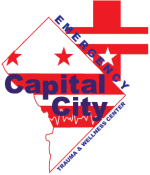3 common myths about workplace mental health and wellness
MHA Admin
Mon, 03/06/2023 – 09:33
Workplace mental health and wellness have become a priority for employers in recent years thanks to the pandemic and shifting work environments. Yet, workers continue to struggle with stress, burnout, and mental health concerns, in addition to unhealthy habits and coping mechanisms in and out of the workplace. So we must ask: What gives? More employers want to support their workforce, but finding the right information and interventions can be challenging.
Fast fact: The U.S. corporate wellness market, valued at $18.4 billion, could sponsor almost 223 million therapy sessions (considering the U.S. average for a one-hour therapy session is $150).
Here are three myths – and mistakes to avoid – when addressing workplace mental health and wellness:
1. People should “leave their personal lives at the door” when at work.
This outdated and out-of-touch cliché sounds great in theory. However, the phrase fails to recognize workers as multidimensional, social, and emotional humans in practice. Of course, workers are expected to act professionally in a workplace setting, but this does not mean that workers aren’t also living with personal worries, life changes, and outside responsibilities while on the job. When work environments shifted during the pandemic, many employees re-evaluated their life priorities to make room for what mattered to them most. At least a few of the 4.4 million people who left their jobs in the pandemic’s “Great Resignation” realized their work and home lives weren’t meshing very well.
2. Addressing mental health in the workplace is the workers’ responsibility.
The number one mistake an employer can make is to ignore workplace mental health or assume it’s the workers’ sole responsibility. Research shows that a mentally healthy workplace requires investment, in other words – time, intention, and action – from all organizational levels, including leadership, management, and workers. Leaders can talk openly about their personal experiences with mental health and model healthy behaviors, like taking mental health days or practicing a healthy life-work balance. Next to peers, managers are often the first people a struggling worker might reach out to for support. Workers can serve as mental health advocates and affect change (and have a history of doing so) at the grassroots level.
3. An employee assistance program (EAP) will address and improve worker mental health concerns.
Yes and no. An EAP should supplement, not replace, an employer’s efforts to support worker mental health. Employers regularly report low EAP utilization rates. Some workers are unaware that their workplace offers an EAP, are unfamiliar with its services and how to access them, or do not want to use it for fear of professional retaliation or discrimination. Some workers find the assistance given unhelpful. That said, employers should consider not putting all their eggs in the EAP basket. Instead, consider improving workplace culture, integrating inclusion and equity efforts, offering high-quality and accessible health insurance, and providing additional benefits that holistically support workers and their families.
Employees, learn more about what you can do to improve your mental well-being in the workplace and answers to common questions about mental health in the workplace.
Employers, what are you doing to create a mentally healthy workplace? In 2019, MHA launched the Bell Seal for Workplace Mental Health to recognize and support corporate leaders and advocates committed to worker mental health and well-being. Join hundreds of organizations, including Walgreens, Chevron, Union Bank & Trust, and more, who are leading the workplace mental health movement.
With three weeks left, there is still time to submit your organization’s Bell Seal application. The submission deadline is Friday, March 31, at 11:59 p.m. ET.







